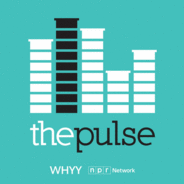If you've tried to book a doctor's appointment lately, chances are, it's been challenging. Many practices are not taking new patients, or open slots are weeks or months away. For some patients, it has meant gritting their teeth through pain and anxiety.For others — like people living in rural areas or trying to see in-demand specialists like psychiatrists or neurologists — it can feel almost impossible to get an appointment at all, posing real threats to their health. Medical organizations warn that we're experiencing a physician shortage — and that things will only get worse.On this episode, we look at this, and other, shortages plaguing the world of medicine, from medications to donated blood. We investigate what's causing this scarcity, and some potential solutions. We'll hear stories about the surprising origin of the physician shortage, and why we still have unemployed MDs sitting at home; what's behind the recent shortages of several high-profile medications; and how researchers are trying to address the chronic shortage of donated blood.Learn more about sponsor message choices: podcastchoices.com/adchoicesNPR Privacy Policy

Wissenschaft & Technik
The Pulse Folgen
Go on an adventure into unexpected corners of the health and science world each week with award-winning host Maiken Scott. The Pulse takes you behind the doors of operating rooms, into the lab with some of the world's foremost scientists, and back in time to explore life-changing innovations. The Pulse delivers stories in ways that matter to you, and answers questions you never knew you had.
Folgen von The Pulse
105 Folgen
-
Folge vom 28.07.2023What's Behind Health Care Shortages?
-
Folge vom 21.07.2023Searching for UtopiaFor centuries, writers and philosophers have imagined what a perfect world might look like — if only we had a chance to start over, build it all from scratch. The term "utopia" comes from ancient Greek. It literally means "no place," but it's also a pun on "eutopia," meaning "good place." In other words, it's a good place that doesn't exist. But that hasn't stopped a never-ending stream of dreamers and seekers — from political and economic theorists, to dictators, hippies, and religious zealots — from trying to create utopias of their own.So, what is it that makes the idea so seductive? Who is attracted to a more perfect world? And what happens when it all goes wrong? On this episode, we explore modern attempts at real-life utopias. We'll hear about an AI researcher's doomed mission to establish a post-apocalyptic community in the Scottish Highlands, what it's like growing up in a utopian community, and the dark side of efforts to build sustainable smart cities around the world.Learn more about sponsor message choices: podcastchoices.com/adchoicesNPR Privacy Policy
-
Folge vom 14.07.2023Behind the Scenes — Challenges in MedicineWhen you're at the doctor's office or a hospital, it's easy to get frustrated. Why is this taking so long? Why do the nurses look so tired? Why does my doctor seem distracted? Who's making sure my diagnosis is right?There are people, stories, and entire worlds that could provide answers to these questions — but as patients, we don't get to see them. So, on this episode, we'll take you behind the waiting room doors, to talk about some of the big issues that affect the health care workforce. We'll hear stories about the decades-long fight over residents' work hours, the history of travel nursing, and what two long-time ER nurses have to say about burnout. We'll also meet some of the crucial, but little-known, professionals who work behind the scenes in medicine.Learn more about sponsor message choices: podcastchoices.com/adchoicesNPR Privacy Policy
-
Folge vom 07.07.2023Inside the Minds of Thrill SeekersSkydiving, BASE jumping, climbing the highest peaks, adventuring to remote parts of the world — pushing the boundaries of safety. For thrill-seekers, chasing the rush is what it's all about. Where lots of us would break into a cold sweat, they experience something different: calm, focus, even moments of sublime awe. So what is it that makes thrill-seekers different? On this episode, we investigate what fuels their desire for adventure, and ask when the pursuit of kicks becomes dangerous and disruptive. We hear stories about storm chasers, rocket builders, and hikers. We also talk to a psychologist who avoids thrills in his personal life, but is deeply invested in understanding why other people love it.Learn more about sponsor message choices: podcastchoices.com/adchoicesNPR Privacy Policy
